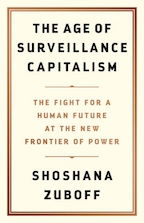
As part of The A.V. Club’s best of the 2010s coverage, we asked some of our favorite authors to share their 10 favorite books of the decade. Concluding the series is novelist and children’s book author Jenny Offill. Offill’s novel Last Things, which follows a young girl as she observes the dissolution of her family, was a finalist for the 1999 L.A. Times First Book Award. Dept. Of Speculation, named one of The New York Times’ 10 Best Books Of 2014, tells the story of a courtship and marriage in a series of disquieting, perfectly condensed vignettes. Her upcoming novel, Weather (February 2020), unfolds in the same precise, spare prose—radiating a similar feeling of hushed dread, this time about the future of the planet—and further solidifies Offill as a sentence-level writer of the highest order. Here, in Offill’s own words, are her favorite books of the 2010s.
The New Yorker Stories by Ann Beattie (2010, Scribner)
Accumulation is a kind of plot, she said once. Here she shows how.
Hour Of The Star by Clarice Lispector (trans. by Benjamin Moser, 2011, New Directions)
Lispector’s brilliant last novel. I hate twist endings, but I think about the one in this novel all the time. Look what she could do in 128 pages!
Madness, Rack, And Honey by Mary Ruefle (2012, Wave Books)
“I have all of eternity to be humble, but I have but a few short years to be pretentious,” Ruefle writes under the heading “Lectures I Will Never Give.” This book will remind you why you like to read books.
The Examined Life: How We Lose And Find Ourselves by Stephen Grosz (2013, W.W. Norton)
Brief, parable-like stories about psychoanalysis. Sounds terrible but because of Grosz’s wit and humility and his (thank god) choice to forgo the jargon of the discipline, this book reads like the best kind of philosophy. I think about it often, especially the phrase “The bigger the front, the bigger the back.” You have to read it to learn the riddle but it will help you the next time you look at someone’s merrily, merrily, merrily, life is but a dream… Instagram feed.
Don’t Even Think About It: Why Our Brains Are Wired To Ignore Climate Change by George Marshall (2014, Bloomsbury)
I read dozens of books about climate change, and this was one of the most important ones. It addresses the psychology of all forms of denial, active and seemingly benign. It gives interesting, concrete suggestions about how to start talking about it to friends and strangers. The science is all there, but he makes a clever choice to put it in an appendix so you don’t fall down a rabbit hole of doomy numbers and predictions right away. That said, he pulls no punches about how serious the situation is.
The Mushroom At The End Of The World: On The Possibility Of Life In Capitalist Ruins by Anna Lowenhaupt Tsing (2015, Princeton)
My friend who is an anthropologist recommended this to me. It’s a weirdly beautiful and profound book that tells the story of a certain kind of mushroom that only grows in human-disturbed forests. With precision and tenderness, Tsing details the intricate connections between people, animals, and vegetables in this globalized commodity chain.
Beautiful Trouble: A Toolbox For Revolution by Andrew Boyd and Dave Oswald Mitchell (2016, OR Books)
This is indeed a toolbox for revolution, of the non-violent direct action kind at least. It’s also really funny. Any book about protesting that includes a chapter headed “No one wants to come to your drum circle” is the one for me.
Fever Dream by Samanta Schweblin (trans. by Megan McDowell, 2017, Riverhead)
This novel reads like dark mythology. Unsettling in the best possible way. I had not read anything by this Argentinian writer before, but I sought out everything else she’d ever written after I read Fever Dream.
Ninety-Nine Stories Of God by Joy Williams (2016, Tin House Books)
Even if I met the devil at the crossroads every night for the rest of my life I could never write like this.
P.S. The Visiting Privileges: Collected And Selected Stories came out in 2016, so it is being shoehorned in, too.*
The Age Of Surveillance Capitalism by Shoshana Zuboff (2019, Public Affairs)
Okay, this is a long book, but ultimately worth it. Zuboff explains with far more insight than anyone before what it means that the latest iteration of capitalism uses both commandeered and freely given personal data as its rocket fuel.
*The paperback edition of Ninety-Nine Stories Of God was released in 2018.
1 Comment
Dept of Speculation is one of the best books of this decade